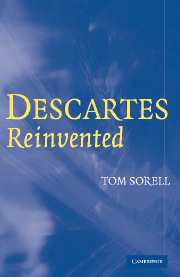Book contents
5 - Reason, Emotion, and Action
Published online by Cambridge University Press: 20 July 2009
Summary
A Cartesian theory of the mind emphasises more than consciousness and the first person. It emphasises reason. In Descartes's own writings, reason is said to correct the deliverances of the senses and is supposed to be the main influence on belief. But it is also supposed to counterbalance the more body-based passions and to take precedence as an influence on action. Descartes is sometimes accused of overemphasising reason and exaggerating the antagonism between reason and other nonrational sources of action. Perhaps a neo-Cartesian theory of the mind is open to a similar accusation, because any Cartesian theory is inevitably rationalist. Might an excessive rationalism be expressed by the idea that reason is a self-sufficient sort of motivation, a proposer of means and ends, not the slave of the passions in the least? I consider this possibility later on in the chapter. I will argue that some form of belief in practical reason is both authentically Cartesian and innocent. I begin, however, with an error that is supposed to arise when Cartesian rationalism is taken together with dualism. What has been called ‘Descartes's error’ is the supposition that embodiment is unnecessary for reasoning, feeling, or other aspects of mental life. Combining this error with the idea (also visible to some readers of Descartes) that emotion and rationality are more often in conflict than in harmony, one allegedly puts entirely out of reach a correct understanding and successful treatment of brain disorders and injuries that produce an impaired rationality by altering emotional capacities.
- Type
- Chapter
- Information
- Descartes Reinvented , pp. 113 - 139Publisher: Cambridge University PressPrint publication year: 2005

